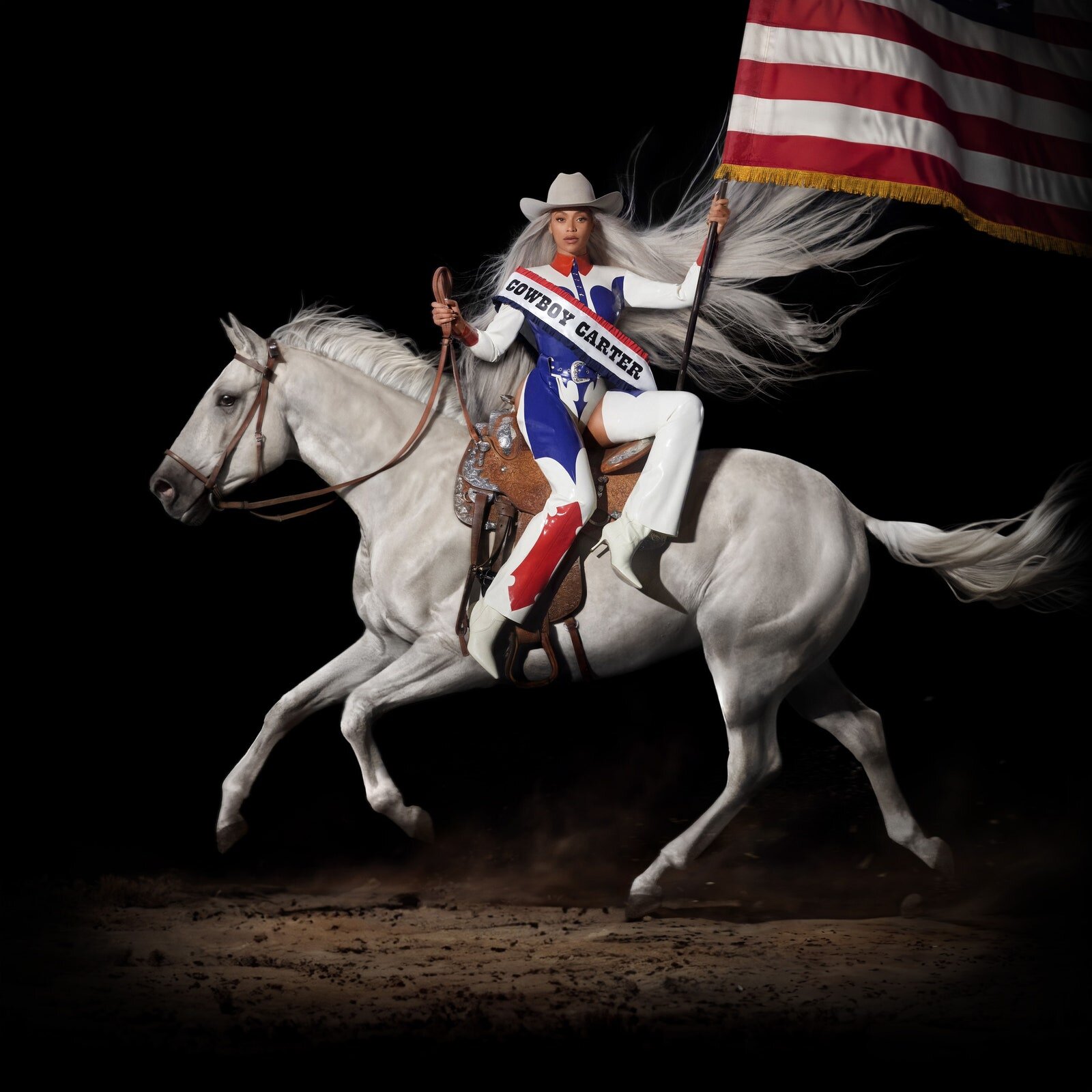BY JOSEPH DEBELL, OPINION EDITOR
Graphic: @beyonce on Instagram
Long before the days of sought-after country artists like Toby Keith, country music has always prided itself on two things: storytelling and being the voice of the everyday American. However, Beyoncé’s experience suggests otherwise.
Beyoncé’s latest effort, “Cowboy Carter,” the first LP by a Black woman to top the Billboard country charts, was shut out of this year’s Country Music Association Awards nominations.
It would be one thing if “Cowboy Carter” was a mess. But that’s not the case.
Beyoncé nailed it with this record. She honored country traditions, wove her Southern roots into the lyrics and even used the album to challenge the exclusion of Blacks from the genre’s history.
Even the title, “Cowboy Carter,” nods to the Black cowboys in the cattle industry that have been erased from mainstream history.
Despite her efforts and critical acclaim, Beyoncé’s work was not embraced by the country establishments. Rather, she faced the same hostility in 2016 when she performed alongside the Dixie Chicks at the Country Music Awards. Critics then said she wasn’t a fit for the genre, dismissing her for reasons rooted in race rather than talent.
Similar to Beyoncé, Charley Pride, one of the few Black country artists to find mainstream success, also faced pushback. Despite his immense talent, early industry executives hesitated to promote him because of his race. Pride’s path to success was fraught with barriers that white artists never faced.
Why is it that when white artists like Post Malone venture into country music, they are welcomed with open arms, but when a Black woman like Beyoncé does the same, she is met with resistance? The only clear reason is hypocrisy in the country music scene.
Even the fact that radio stations refused to play her music, with one station in Oklahoma saying outright, “We do not play Beyoncé…as we are a country music station,” shows the hypocrisy in the music industry.
Not acknowledging “Cowboy Carter” isn’t about snubbing Beyoncé. It’s a reflection of an industry that is unwilling to reckon with its own racial biases.
If country music prides itself on representing the heart and soul of America, it must recognize the contributions of all Americans, including those who have been excluded from the narrative.
debelljb22@bonaventure.edu







